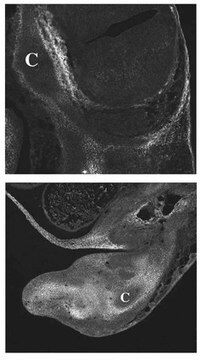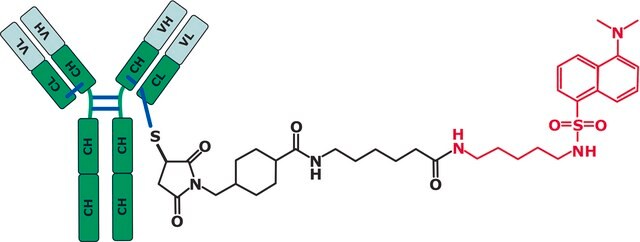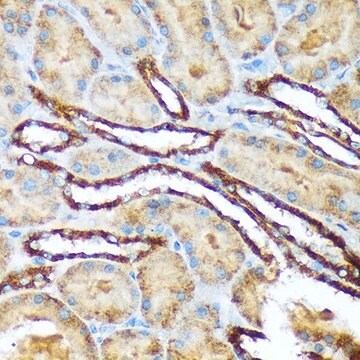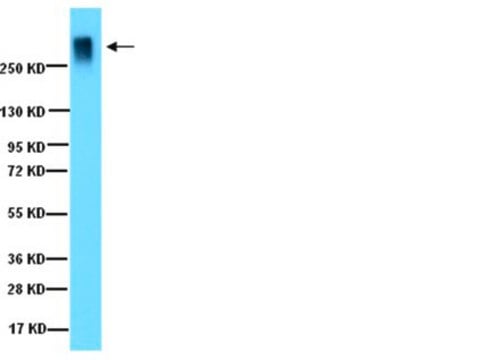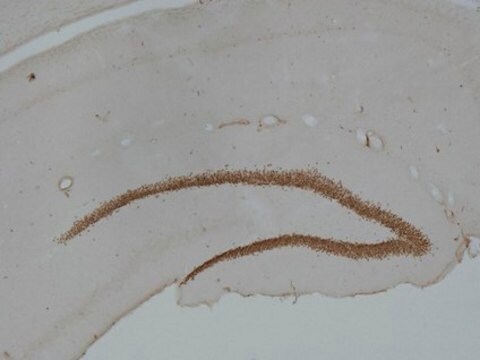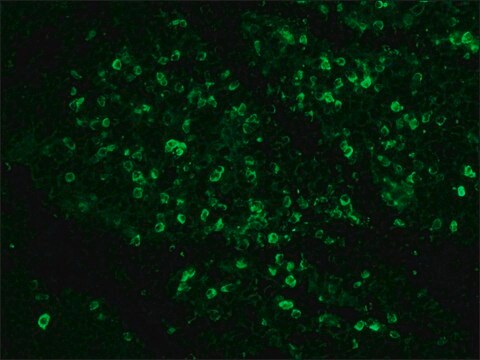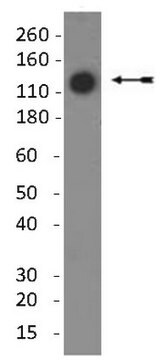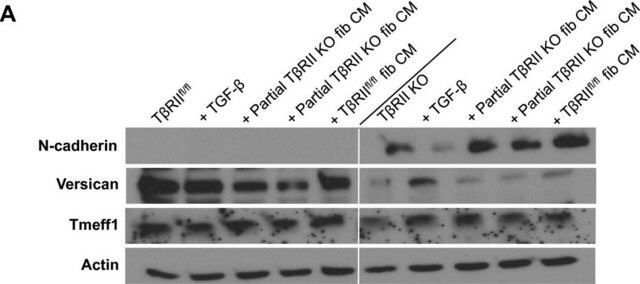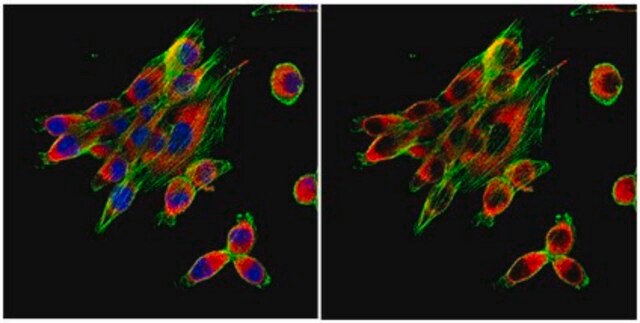MABT161
Anti-Versican Antibody, clone 8D8.1
clone 8D8.1, from mouse
Synonym(s):
Versican core protein, Chondroitin sulfate proteoglycan core protein 2, Chondroitin sulfate proteoglycan 2, Glial hyaluronate-binding protein, GHAP, Large fibroblast proteoglycan, PG-M
About This Item
Recommended Products
biological source
mouse
Quality Level
antibody form
purified antibody
antibody product type
primary antibodies
clone
8D8.1, monoclonal
species reactivity
human, mouse
technique(s)
immunohistochemistry: suitable
western blot: suitable
isotype
IgMκ
NCBI accession no.
UniProt accession no.
shipped in
wet ice
target post-translational modification
unmodified
Gene Information
mouse ... Vcan(13003)
General description
Specificity
Immunogen
Application
Western Blotting Analysis: 0.2 µg/mL from a representative lot detected Versican in mouse leg muscle tissue lysate.
Cell Structure
ECM Proteins
Quality
Immunohistochemistry Analysis: A 1:50 dilution from a representative lot detected Versican in human thalamus tissue lysate.
Target description
Physical form
Storage and Stability
Analysis Note
Human thalamus tissue lysate
Other Notes
Disclaimer
Not finding the right product?
Try our Product Selector Tool.
Storage Class Code
10 - Combustible liquids
WGK
WGK 2
Certificates of Analysis (COA)
Search for Certificates of Analysis (COA) by entering the products Lot/Batch Number. Lot and Batch Numbers can be found on a product’s label following the words ‘Lot’ or ‘Batch’.
Already Own This Product?
Find documentation for the products that you have recently purchased in the Document Library.
Our team of scientists has experience in all areas of research including Life Science, Material Science, Chemical Synthesis, Chromatography, Analytical and many others.
Contact Technical Service